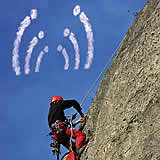Re-Engineering Assessment Practices in Scottish Higher Education

Interim Report 1 PDF 77KB
Interim Report 2 PDF 138KB
Interim Report 3 PDF 766KB
Completion Report PDF 118KB
Educational research
Assessment is a key driver of student learning; it determines both how and what students study. Yet, research shows that prevailing modes of assessment often promote high teacher workloads rather than enhanced student learning. There is a need to rethink institutional assessment systems - away from a model where teachers transmit marks, to one where students develop, over the course of a degree, their own ability to self-assess and self-correct.
The educational basis for the REAP project is recent research on assessment. Black and William (1998) carried out a meta-analysis of research on formative assessment, over a 10-year period, across the schools and HE sectors. They showed that where assessments focused on generating feedback and encouraging its use the learning gains were 'among the largest ever reported for educational interventions'. Other researchers have shown how formative assessment and feedback might support the development of learner self-regulation (Nicol and Macfarlane-Dick, 2004; Nicol and Macfarlane-Dick 2005). Still others have shown how assessment might be used to engage students in active learning over the course of their studies (Gibbs and Simpson, 2004) or might simultaneously enhance both immediate and lifelong learning needs (Boud, 2000). Despite these recent publications, this research has had little impact on HE practices. The current project will address this gap by drawing on current thinking and on the potential available through new technologies (see, Nicol & Milligan, 2006).
Supporting Documentation
The seven principles of good feedback - supporting student learning through assessment (ppt): Presentation from SU Learning Enhancement Network event Tues 24 April 06, David Nicol, REAP Project Director
Last modified: